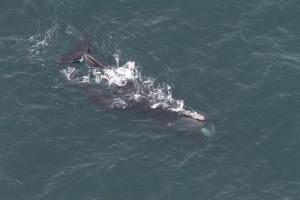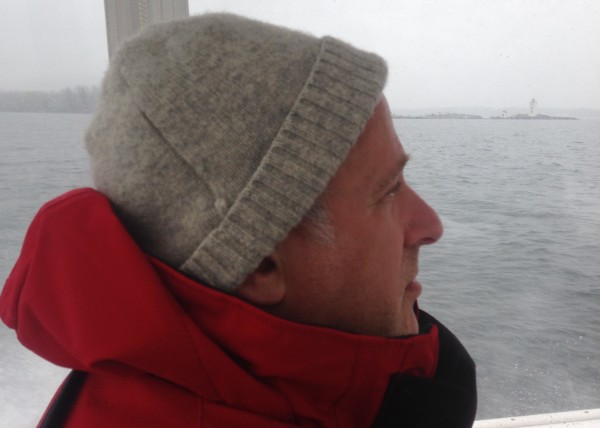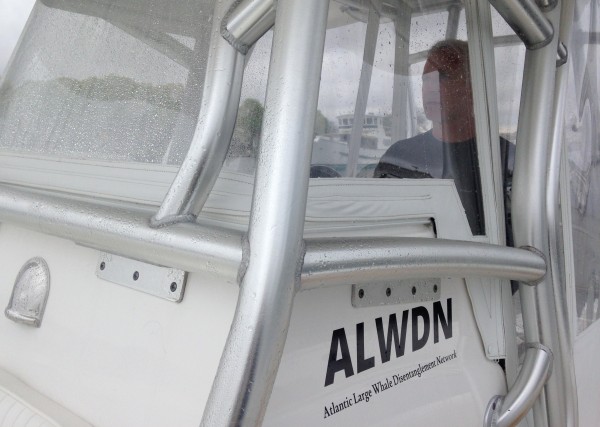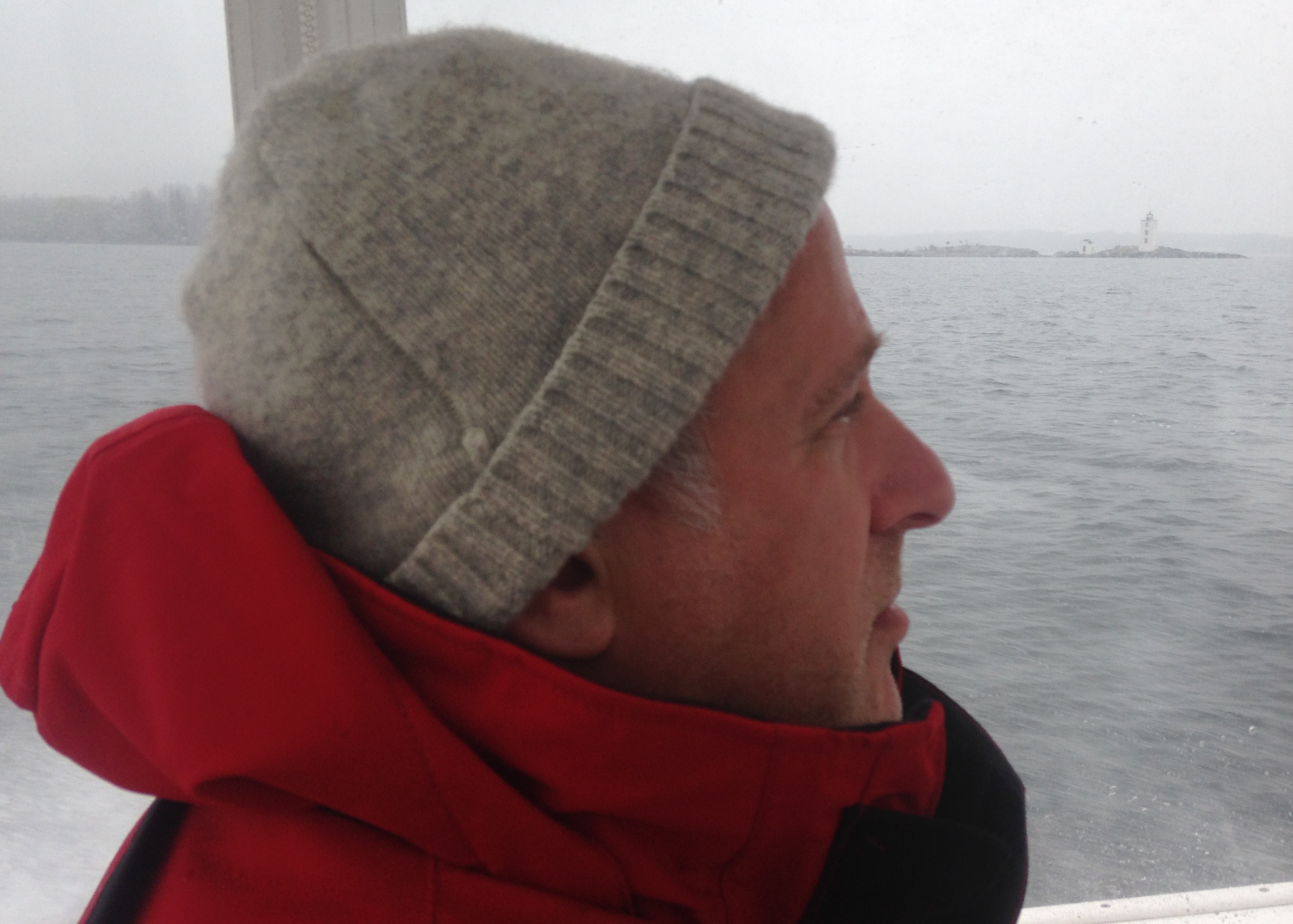
North Atlantic right whales, the most endangered mammal on the planet, were once a regular attraction here in the Rhode Island.
“In February 1828, ‘a Right Whale forty four feet long, and rated at about seventy barrels of oil, was killed in the waters off Providence, R.I., after having been seen for several days ‘sporting in our river’,'” wrote URI Oceanography professor and right whale expert Bob Kenney wrote in the 2010 Ocean Special Area Management Plan.
These massive marine mammals – they can be 50 feet long and more than half that wide – still travel our waters on their annual spring migration from Florida to the Cape Cod Sound. In 2011 57 were spotted in Rhode Island Sound. And in 2010, 98 were noticed here. That’s approximately one-fifth of the remaining population. An endangered species, there are said to be fewer than 500 left in existence.
“Potential impacts on right whiles must be considered for all construction activities or on going operations for any alternative energy development,” wrote Kenney in the 2010 Ocean SAMP.
And so yesterday Deepwater Wind announced that it would add extra precautions as it studies these waters for the first ever large-scale offshore wind farm in the United States.
“We could plow forward with plans and fight it out at the end,” said Deepwater Wind CEO Jeff Grybowski, “or you can decide to embrace solutions constructively.” He said the concessions will cost his company “several hundred thousand dollars.”
The agreement, signed with the Conservation Law Foundation and applicable only to the planning phase of the project, says Deepwater won’t construct weather towers in the spring when whales are likely to be in the vicinity. It also requires the company to employ year-round “real-time human monitoring for whale activity in the site area,” according to a press release.

This could potentially be good news for John Lang, skipper of the MV Ocean State, a 36-foot center console boat he uses to search for entangled or otherwise distressed whales in the waters of Rhode Island. To his knowledge, he’s the only one actively looking for whales in these waters. Check out his Facebook page here.
“If I could afford to go out every day, I’d find an entangled whale,” he told me as we motored out of Narragansett Bay Thursday. He can’t afford to go everyday, as it can cost him upwards of $1,000 a trip in fuel.
We were planning to “run the trap lines,” or check the network of lobster traps and gill nets used for commercial fishing that can entangle whales and other marine mammals. “There are strings of them, for miles and miles.” His routine is to look anywhere from 20 miles south of Block Island to just east of Nantucket.
Lang says whales frequently become entangled in fishing gear, and research shows it is a major cause of unnatural whale death. In 1995, an entangled right whale washed up dead on Second Beach in Middletown, and in 2000 an entangled right whale was found floating dead off Block Island.
In other states, networks of volunteers and scientists monitor offshore waters for entangled whales. Lang thinks the only reason entangled whales are being spotted off Rhode Island is because no one is looking.
 A wildlife cinematographer by profession who earlier studied the spotted owl, Lang sailed solo from Miami to the Ocean State four years ago and decided to stay. Last year, he decided to help protect whales while he’s here.
A wildlife cinematographer by profession who earlier studied the spotted owl, Lang sailed solo from Miami to the Ocean State four years ago and decided to stay. Last year, he decided to help protect whales while he’s here.
“I can drive a boat and I’ve always worked with endangered species,” he said. “That’s the core of the mission. If I get an email from the network, there’s a good chance I can find that whale and wait with that whale until the recovery team comes. Nobody else as far as I know would be ready to go in a moment’s notice in a boat that can go 50 here in Narragansett Bay.”
He has yet to see a whale, but for the time being he’s willing to invest his own money in looking.
“I’m gonna have to be patient,” he said. “It might take a year or two, it might take two or three years. But at some point, though, we will, we will get our whale.”

